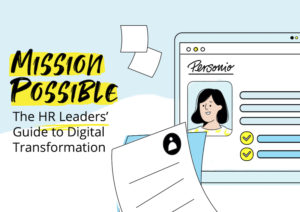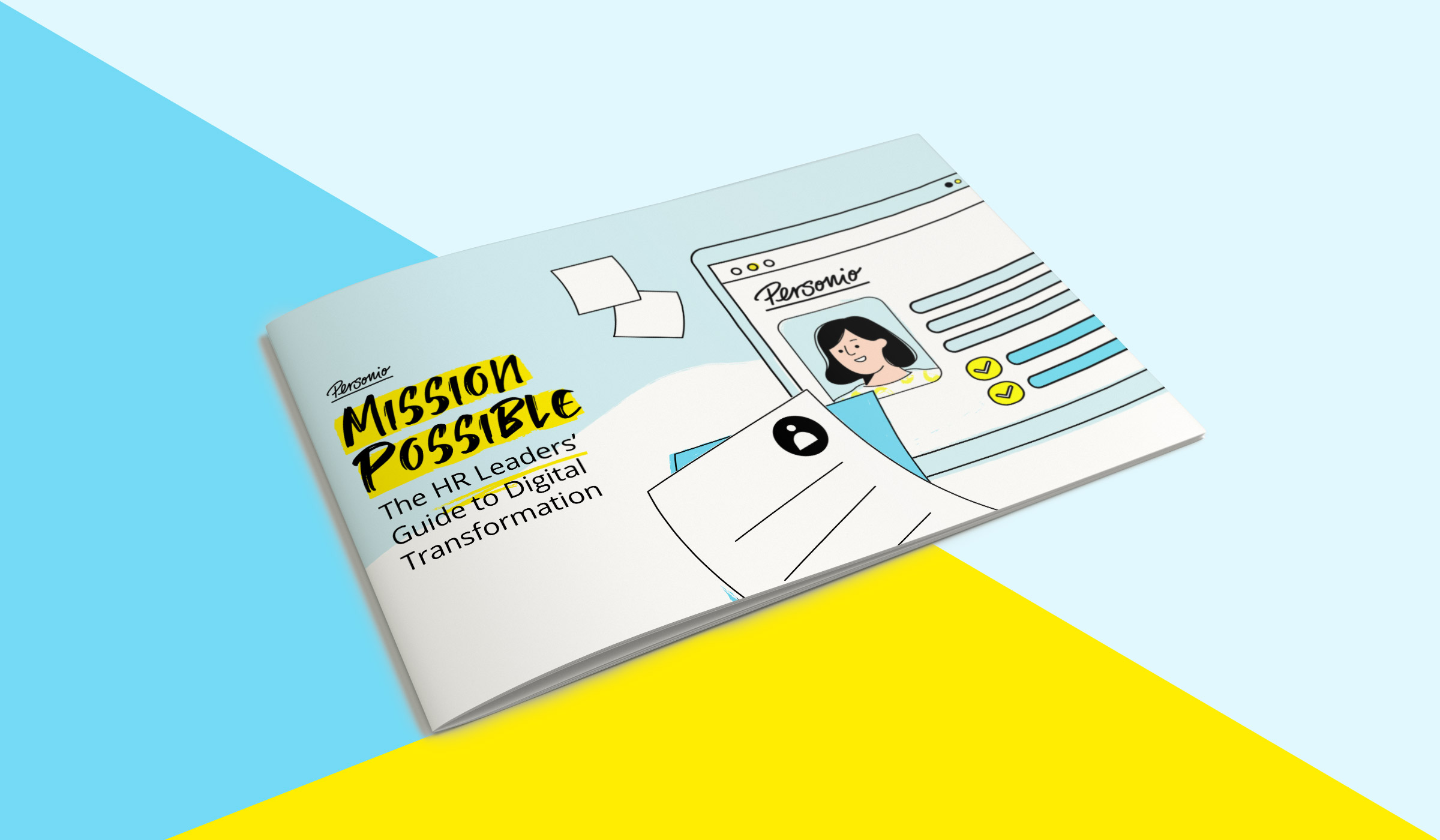HR processes are all about getting your core HR work done and having it done right. After all, operational excellence helps pave the way for business resilience and success, and proper ones play a large role in making that a reality.
They also work to define and ensure a successful experience when it comes to each stage of the employee lifecycle. In this article, we detail some of the most important HR processes, why they matter, and how they can have a measurable impact on business performance.
The best processes begin with your people. Download our people strategy guide today.
Contents
What Are HR Processes?
What Are End-To-End Processes?
What are Common Examples of HR Processes?
Why Do These Processes Matter?
How Do You Manage Processes Effectively?
Can Processes Improve Company Culture?
Can Process Increase Employee Retention?
Can Digital Processes Save Your Company Time?
What Happens If You Get Your Processes Wrong?
Start Improving Your Processes Today
What Are HR Processes?
HR processes, generally, are made up of a collection of ‘core processes.’ The core functions of an HR department, in this sense, including important topics like recruitment, scheduling, payroll, benefits, internal relations, training, compliance, amongst others.
Ultimately, each of these are dependant on one another. That is why it is so important for HR leaders to have both the time and desire to strategically set them out, iterate on them, and create a holistic collection that influences one another in a positive way.
What Are End-To-End HR Processes?
Let’s think about this in terms of the employee lifecycle. End-to-end processes are all the different steps that introduce an employee, manage their performance, help them advance, or help them exit a company. When you have a process for each stage, you are effectively guiding an employee on their professional journey.
Sometimes, this could mean keeping them longer in a critical stage. Or, it could mean finding out that they aren’t a great fit from the very beginning and speeding up that process. Or, it could simply mean having happier employees from the first day on the job.
Read our complete guide on the employee lifecycle by clicking right here.
What are Common Examples of HR Processes?
Some of the most common include:
- Recruiting
- Onboarding & Off-boarding
- Workforce & Succession Planning
- Employee Engagement & Relations
- Compensation, Benefits, Rewards
- Absence Management
- Performance Management
These are just some examples of the most common processes. What you’re likely to notice is not only how many there are, but how important they are when it comes to each stage of the employee lifecycle.
In short, all of these touch employees on their first, last, and most important days at work. That’s why having them in place can often play a key role in organizational success.
Free Download: On A Quest To Digitize Your HR?
Let us help. Download our guide to digitizing your HR, entitled ‘Mission Possible,’ today. It will give you the start you need to digitize with confidence.
Why Do HR Processes Matter?
For leaders in HR, processes are everything. They are the way you handle operational excellence within your organization, which then extends to almost every aspect of your business.
When you have the right ones in place, you can help drive performance. It then elevates the status of HR within the organization, which helps position HR as a strategic voice at the table of executive leadership (where it, in truth, rightfully belongs).
Therefore, they matter because they help lay the groundwork for employees to succeed in their roles, and for the business to thrive as a result.
How Do You Manage HR Processes?
For many businesses, they may handle their processes across an assortment of different tools or spreadsheets that help make them a reality. While it helps make them possible, it can often hold back productivity when it comes to creating a seamless experience.
That’s because manual processes often take more time, result in less-reliable data, and are, on the whole, far less secure. While they offer companies a place to start, they are not able to scale or grow with company’s as their needs change or when certain areas of emphasis gain importance.
HR processes can also be managed by an all-in-one solution, like Personio. This way, all of your core HR tasks are handled in one software, offering a single source of truth and an easy-to-remember place for employees, managers, and executives to reference when it matters to them.
Learn More: Onboarding With Personio
Make your HR as effective as possible, starting from an employee’s first day. Discover more about using Personio to help onboard new employees today.
Can HR Processes Improve Company Culture?
When a company has proper processes in place, it can have an untold positive effect on company culture.
That’s because company culture is almost always influenced by HR, and the ways in which people feel heard, planned around, and catered toward in terms of their relationship with the organization.
After all, a business’s most important asset is its people. When you have effective processes in place, it can help employees better understand your organization’s vision, purpose, and the ways in which you promote performance, help people feel heard, and the initiatives you take to manage employees and their wellbeing.
All told, culture needs to start from the top, but HR processes can help ensure that it is articulated and evidenced in every corner of the organization. They can both help set and emphasize elements of culture that matter most.
Can HR Processes Increase Employee Retention?
Of course! When you have streamlined HR processes in place, a myriad of things happen. You can improve the time it takes for employees to complete work surrounding their performance, you can help them feel heard (raising job satisfaction), and you can increase morale.
For each of these reasons, you can have a meaningful effect on your retention or attrition rate, simply by having the processes that help employees succeed in their roles. It also positions your organization for the future, allows you to plan more strategic initiatives, and boosts retention in ways you may never have thought of before.
Can HR Processes Save Your Company Time?
When you automate your processes and digitize them, you can save time for everyone in your organization. This not only applies to those in HR, but also those who have different roles — everyday employees, leaders, and executives. Processes that make sense help make everyone’s work easier.
What Happens If You Get Your HR Processes Wrong?
When you don’t have processes in place, it can be a slippery slope in terms of employee performance, engagement, and overall morale. Especially when it comes to trying to incorporate a wide range of tools to manage them, you can delay people in their work and sap their interest.
On a larger scale, improper methods can also cause your employees to become unsatisfied. They can feel as though they are not developing in their roles, or they are not being heard, thus increasing your company’s attrition rate when they leave (and hurting your business’ reputation overall).
Therefore, you’re not only losing time, but you are losing talent and valuable equity. That’s why you need to invest in processes that make sense for your employees, and that engage them in a meaningful way (without taking up all of their time with scattered tools or manual processes).
Improving Your HR Can Happen Today
Rather than being reactive to the times, organizations now more than ever are going to need to be proactive to prepare for the future of work. Having a proper HR software in place can make a massive difference, as it can ensure all of your processes are thought through, effective, and saving your teams time for more strategic work.
Discover Personio
Starting Right Now






